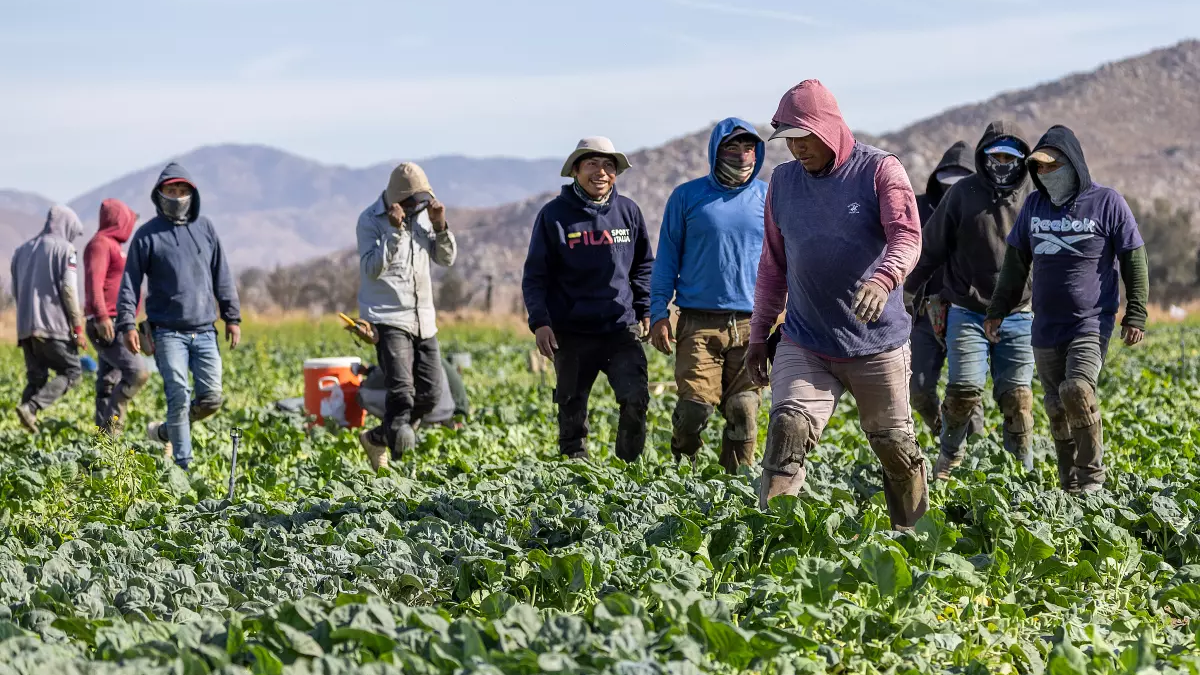How President-elect Trump’s Immigration Enforcement Plans May Impact Rural America
As President-elect Donald Trump gears up for his second term, rural America’s agricultural sector is in the hot seat. At the heart of his agenda are stricter immigration enforcement policies, including deportations of undocumented workers

As President-elect Donald Trump gears up for his second term, rural America’s agricultural sector is in the hot seat. At the heart of his agenda are stricter immigration enforcement policies, including deportations of undocumented workers. While these measures aim to bolster the rule of law, they could also throw a wrench into the agricultural workforce and spark economic instability in the very communities that handed him a decisive victory.
The Backbone of Rural Agriculture
Let’s face it—farming in the U.S. runs on undocumented labor. According to the U.S. Department of Agriculture, nearly half of the farm labor force comprises individuals without legal status. These workers do the backbreaking, labor-intensive jobs—planting, harvesting, and everything in between—that domestic workers often avoid like the plague.
Tighter immigration policies could pull these workers off the fields, leaving farmers scrambling to fill the gaps. One industry observer put it bluntly: “If we lose this workforce, we’ll lose our ability to compete globally.”
The reliance on immigrant labor is particularly stark in California, where crops like fruits and nuts demand an army of hands. In states like Kansas, where machines do much of the work, the impact might not hit as hard—at least not at first. But don’t be fooled: even these regions depend on immigrant labor for processing, packaging, and transportation.
Economic Ripple Effects
Losing undocumented workers isn’t just a headache for farmers—it’s a full-blown crisis waiting to happen. A 2021 American Farm Bureau Federation report found that a sudden loss of immigrant labor could increase food prices by 5-7%. This could be the straw that breaks the camel’s back for small farms already on life support financially.
The fallout wouldn’t stop there. Local businesses—from equipment suppliers to grocery stores—would feel the pinch, and rural schools could see shrinking enrollment and funding. It’s a domino effect, and none of the pieces fall in a good direction.
The H-2A Visa Program: A Lifeline or a Hassle?
The H-2A visa program, which allows U.S. farmers to bring in foreign workers legally for temporary jobs, seems like a lifesaver—on paper. In reality, it’s a red tape nightmare. Nearly 310,000 visas were issued in 2023, but the process is expensive, time-consuming, and challenging for small farmers to navigate.
Making matters worse, Project 2025—the policy playbook for Trump’s second term—may impose even more restrictions. Instead of helping farmers get the labor they need, it could make things even messier.
Historical Lessons and Long-Term Challenges
This isn’t the first time farmers have been caught in an immigration policy storm. Remember the Bracero Program? Its abrupt end in the 1960s left a gaping hole in the labor market, and while some farmers turned to machines, others weren’t so lucky.
Fast-forward to today, and automation is still no quick fix. It’s expensive, limited in scope, and nowhere near ready to replace the human workforce—especially for crops that need a delicate touch, like berries or lettuce.
Broader Social and Community Impacts
When enforcement ramps up, the fallout isn’t just economic—it’s personal. Families get separated, communities fracture, and fear takes root. A 2020 study by the Migration Policy Institute found that enforcement actions often reduce school enrollment and strain local services in immigrant-heavy areas.
And let’s not forget the emotional toll. “When workers disappear, it’s not just about labor—it’s about losing members of our community,” said one advocate. That’s a sentiment that sticks.
Advocacy and Potential Solutions
Advocacy will be key if rural America wants to weather this storm. Expanding the H-2A program and creating pathways to legal status for undocumented workers already embedded in agriculture would go a long way toward stabilizing the workforce.
Organizations like the National Farmers Union and the American Farm Bureau Federation have pushed for reforms before, and their voices will be critical now. Recent legislative proposals aimed at streamlining immigration processes could offer a lifeline, but only if farmers and policymakers work together to make them a reality.
Conclusion
President-elect Trump’s immigration enforcement plans put rural America in a tough spot. While the policies align with his campaign promises, they risk undermining the agricultural communities that form the backbone of his support.
Rural voters now face a choice: advocate for practical solutions or brace for the fallout. With lessons from history, the resilience of affected communities, and the potential for bipartisan action, there’s hope for a path forward. But make no mistake—the coming years will be a test of strength, adaptability, and priorities for rural America.
At DayMark News, we are committed to exposing the rise of authoritarianism and its threat to democracy. In a time when disinformation spreads like wildfire and democratic institutions face relentless attacks, we need your support to keep the fight alive.
Investigative journalism is our weapon against authoritarian ideologies. We delve deep to uncover the truths others would rather keep hidden, while providing actionable resources to empower individuals like you to defend our democracy.
We believe in transparency, integrity, and the power of a well-informed public. But maintaining a platform dedicated to fearless reporting and mobilization requires resources. We refuse to bow to corporate interests or compromise our mission. That's why we turn to you — our community.
Every donation, big or small, helps us continue our work. With your support, we can produce the in-depth analyses, breaking news, and educational tools needed to resist the rise of extremist movements and protect democratic values for future generations.
This fight belongs to all of us. Together, we can ensure that democracy not only survives but thrives. Please consider making a contribution today to keep DayMark News strong and independent.
Donate Now: Because Democracy Can't Defend Itself.
Sources:
- Cal Matters: Trump’s deportations could cost California ‘hundreds of billions of dollars.’ Here’s how
- WENY: How Mass Deportations and H-2A Visa Changes Could Disrupt U.S. Farming
- Farmworker Justice: Trump Department of Labor Proposes Harmful Changes to H-2A Agricultural Guestworker Program
- CBS News: Trump "border czar" Tom Homan vows "there is going to be a mass deportation" during border visit with Texas governor





